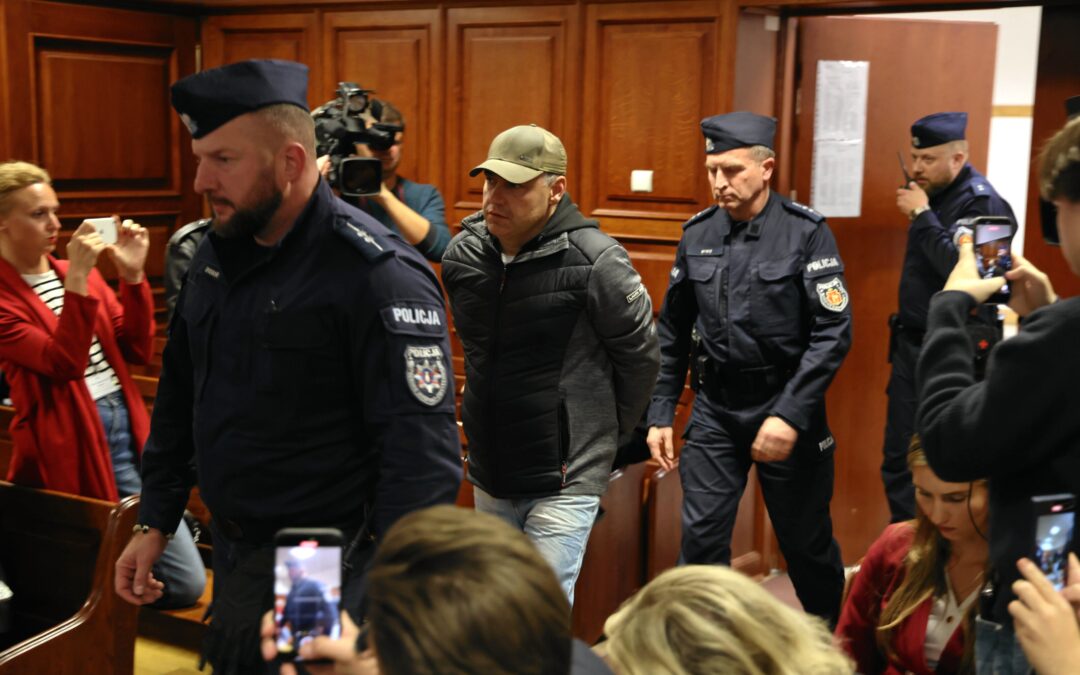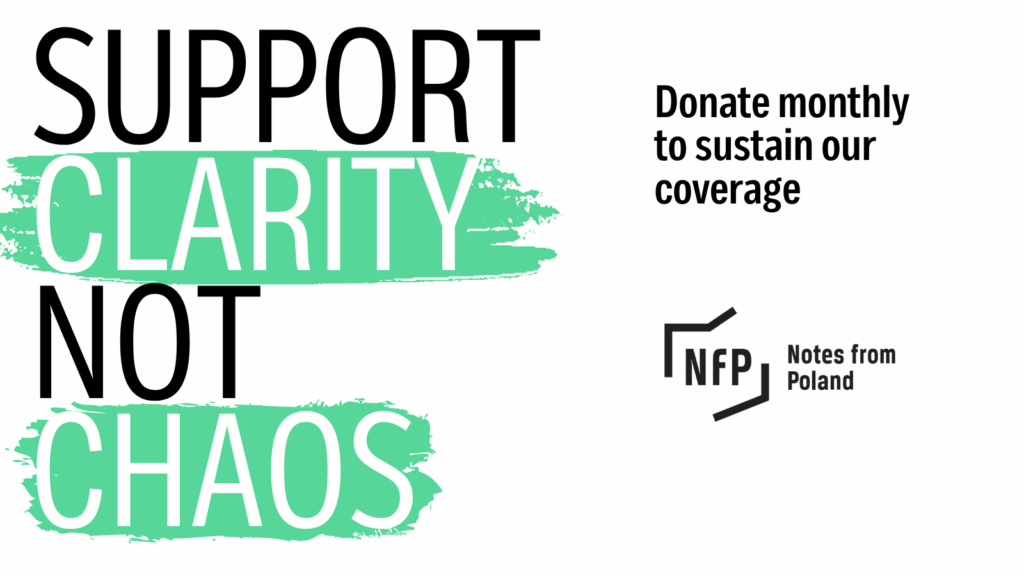Keep our news free from ads and paywalls by making a donation to support our work!

Notes from Poland is run by a small editorial team and is published by an independent, non-profit foundation that is funded through donations from our readers. We cannot do what we do without your support.
A Polish court has refused to extradite the Ukrainian man wanted by Germany under a European Arrest Warrant for his alleged involvement in the sabotage of Russia’s Nord Stream gas pipelines.
The judge found that the act of attacking enemy infrastructure for the purposes of fighting “a just, defensive war…can under no circumstances constitute a crime”.
Polish court denied extradition to Germany of a Ukrainian national suspected of blowing up Nord Stream 2 and released him from custody. And rightly so. The case is closed.
— Donald Tusk (@donaldtusk) October 17, 2025
The man – who can now be named as Volodymyr Zhuravlov, having waived his right to privacy – was detained on the outskirts of Warsaw, where he lives, in late September by Polish police on the basis of Germany’s warrant against him.
Warsaw’s district court then had up to 100 days to decide whether he should be extradited to Germany, where prosecutors accuse him of involvement in criminal sabotage of the pipelines, which were hit by a series of explosions on 26 September 2022, rendering them inoperable.
Previously, Nord Stream had brought Russian gas to Germany through the Baltic Sea.
“The German authorities’ request to extradite Volodymyr Zhuravlov should not be granted,” declared judge Dariusz Łubowski at a hearing today, quoted by the Rzeczpospolita daily.
Although the court’s decision can still be appealed, the judge ordered Zhuravlov to be immediately released from detention. “You’re free to go,” Łubowski told him, quoted by the Polish Press Agency (PAP).
The decision was praised by Polish Prime Minister Donald Tusk, who wrote on social media that the court had “rightly” denied extradition and released the suspect. “The case is closed,” he added, despite the possibility of an appeal.
Last week, Tusk had declared that it was “not in Poland’s interest, or in the interest of a simple sense of decency and justice, to charge or extradite this citizen to another country”. Many in Poland regard those who blew up the Nord Stream pipelines as heroes, not criminals.
Earlier this week, Italy’s top court blocked the extradition to Germany of another Ukrainian suspected of involvement in the Nord Stream sabotage.
Polish PM @donaldtusk says it is "not in the interest of Poland or of decency and justice" to extradite to Germany the Ukrainian man recently detained on a European Arrest Warrant for his alleged involvement in sabotage of the Nord Stream gas pipelines https://t.co/W2Yfm4CcCn
— Notes from Poland 🇵🇱 (@notesfrompoland) October 8, 2025
At today’s hearing in Warsaw, the judge emphasised that it was not the Polish court’s role to determine whether or not the suspect is guilty of the crimes he is accused of, only whether there are grounds for executing the warrant against him and extraditing him to Germany.
Łubowski noted that the German authorities had submitted to Poland “only very general information” about the case – so little that it “can fit on a single A4 sheet of paper”.
Justifying his decision not to approve the extradition of Zhuravlov, the judge noted that certain actions which in peacetime would consistute crimes are legally justified if they take place in the context of a just and defensive war.
Ukraine’s “fight against Russian aggression and genocide…undoubtedly meets all the conditions” to classify it as “a just war, bellum iustum, that ultimately leads to the victory of good”, said Łubowski, quoted by Rzeczpospolita.
Poland has detained a Ukrainian man accused by Germany of involvement in the sabotage of the Nord Stream pipelines, which brought gas from Russia to Germany.
A court will now decide whether the man, a resident of Poland, should be extradited to Germany https://t.co/pPG4KpiBfK
— Notes from Poland 🇵🇱 (@notesfrompoland) September 30, 2025
“Blowing up of critical infrastructure…during a just, defensive war…is not sabotage, but rather military actions…which under no circumstances can constitute crimes,” added the judge.
“In other words, if Ukraine and its special forces, including the suspect, organised an armed mission to destroy enemy pipelines, these actions were not unlawful. On the contrary, they were justified, rational, and just.”
Zhuravlov’s lawyer, Tymoteusz Paprocki, hailed the ruling as “one of the most important in the history of the Polish justice system” and a “signal to Germany that the law…should always be on the side of the injured party, and not be used instrumentally to serve larger interests”.
I jakie ładne uzasadnienie dał nasz sąd… https://t.co/GP6gX0T6Kx
— Michał Kuź (@michalkuz) October 17, 2025

Notes from Poland is run by a small editorial team and published by an independent, non-profit foundation that is funded through donations from our readers. We cannot do what we do without your support.
Main image credit: Mateusz Skwarczek / Agencja Wyborcza.pl

Daniel Tilles is editor-in-chief of Notes from Poland. He has written on Polish affairs for a wide range of publications, including Foreign Policy, POLITICO Europe, EUobserver and Dziennik Gazeta Prawna.




















